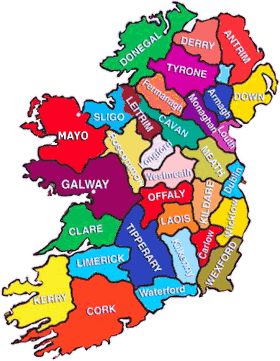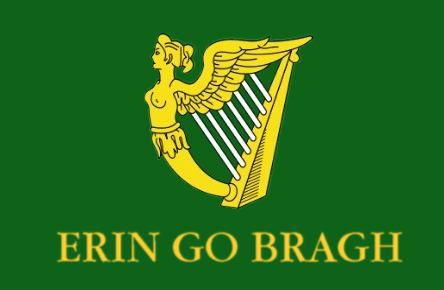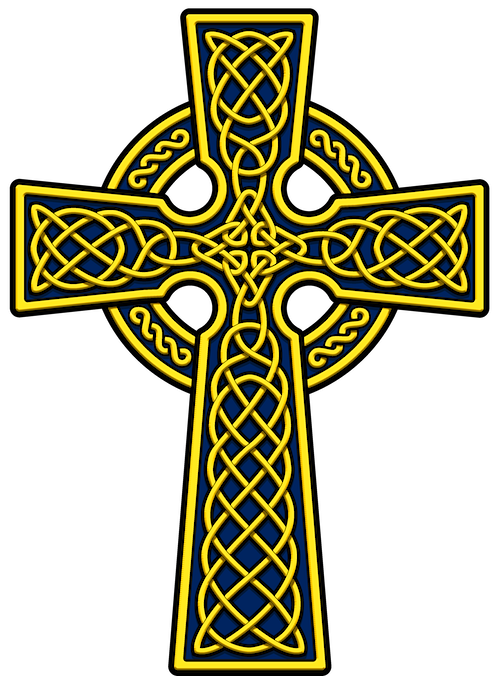
Researching Your
Irish Roots

 |
IRISH GENEALOGY Researching Your Irish Roots |
 |
The Desert
Shamrock
Arizonaís
Original Irish Newspaper
Volume 9, Number 3, May/June 1998, page 27
RESEARCHING YOUR IRISH ROOTS
History: The
Times of Your Ancestors
by Robert M.
Wilbanks IV, B.A.
Professional Genealogist & Historian
†††††† Previous articles have discussed searching family records, public records, and networking nationally and internationally. I raised basic questions regarding genealogical research in Ireland, and explained the importance of geography in relation to genealogy, giving a brief geographical breakdown of Ireland. (These previous articles are on my web site at http://www.robertwilbanks.com; click on Professional Services then Genealogical Writings.) Now I wish to explain the relationship and importance between history and genealogy.
††††††† Genealogy and history cannot be separated. You cannot disassociate your ancestors from the times and the places in which they lived. To better understand them, and to more successfully research them, you must learn about the events and the times which was a part of their lives.
††††††† A large part of the thrill of American genealogy is to learn of an ancestorís participation in the "Great American Experience". It is exciting to find an ancestor part of great American moments as: disembarking at Ellis Island; fighting in the Civil War or the American Revolution; coming over on the Mayflower in 1621, or settling Jamestown, Virginia in 1607. To better find these ancestors, and to understand them and the period that they lived in, you must know the basics about American History.
††††††† The same goes for researching your ancestors from Ireland. Did they come to America in the 1600s and 1700s to escape the British Subjugation of Ireland? Were they part of the great number of Ulster-Scots who came to America in the early to mid-1700s, becoming the backbone of the frontier growth of America? Were they convicts sent to the far reaches of the British Empire, or did they leave Ireland during the great Famine? Did they emigrate to England and America during the great industrial growth of the late 1800s and early 1900s, adding to the growth of cities such as New York, Boston, and Chicago.
††††††† An old school textbook, or other young adult books, on the history of America and Ireland should be a standard part of every genealogistís library. These books will be easy to read, and will help to present a general overview of the history of America and Ireland, thus providing you with a basic knowledge and understanding of the times of your ancestors.
††††††† Meanwhile, a knowledge of history will help you to better be able to research your heritage. History actually dictated the types of records kept, along with the format, content and survival of those records. Understanding social stratification, patterns of migration and settlements, and even occupations, will help you better know when and where to search for your ancestors in the records. Success in genealogical research depends upon an understanding of the events in the lives of your ancestors and to determine whether those events would have created records for your ancestor and discovering where those records would be.
††††††† For example, a basic knowledge of the American Civil War would help you to realize that if your ancestor was of an age to be drafted and fight in that war, he would thus appear in the records that were created for his service in that war. These records may provide his date and place of birth, parentís names, heirs, and, if he died, the date and place of his death, as well as other helpful information. †
††††††† However, if he was of an age to serve and yet you find that he didnít, then your search may need to go in a different direction. What prevented him from serving: a disability? a religious belief? The absence of your ancestor in a record during a significant event can be a clue, but only as long as you know and understand what was happening around him during his life.
††††††† Meanwhile, as important as history is to genealogy, genealogy has become significant to the study of history. The historian has discovered that he can enrich his understanding of the past by seeing it from the perspective of those most affected by its events. He has also discovered that the family and the individual had a greater impact on historical events than was previously thought, and that the effect of an event on individuals, families and communities may be more important than the event itself.
††††††† Genealogy is contributing more and more significantly to the study of local, regional and national history. To study the history of a community, it becomes necessary to study the families in that community. Views change on various aspects of history through more in-depth and detailed research of individuals, families and groups of people, many times changing the generalizations that had long been believed.
††††††† Most importantly, personal journals, memoirs, diaries, and other family records, are being discovered and have added to our historical awareness. Personal accounts are important for studying historical events. For example, more than half of the records studied in the American Civil War are personal accounts of the people who were there. Recently, during the 50th Anniversary of World War II, veterans were being interviewed about their experience so that Americans would have a better understanding of the personal lives of the men and women in the war.
††††††† Studying your familyís history helps to bring history alive and make it more exciting. It is fascinating to learn why your family left home to come to America, or to learn of their experience in war, frontier settlement, migration to the big city, etc. Even the more harsher aspects of history, such as frontier life, slavery, the subjugation of the Native Americans, and the Irish, help you to learn about those who suffered, and understand and respect them for their ability to survive and grow. You will realize that as hard as your life seems, you have it easy compared to your ancestors, and you will feel grateful toward them for what they gave up and endured to make a better life for themselves and their families. They left us a legacy to be proud of.
DISCLAIMER: This is an important reminder that the above article is provided here exactly as originally written and published several years ago. Therefore, while most of the primary context of the article may still be relevant, please be aware that possibly certain of the information and references may now be outdated, such as individuals and organizations, links, contacts, facilities, etc. Please follow-up accordingly for more updated information.

Home Irish Writings Irish Publications Web Links

This website sponsored by Ancestral Pride: Professional Genealogy Services
Why Should You Consider Genealogy? Click Here to Learn More.
When you are ready to get started, contact us to learn how.
©2013, Robert M. Wilbanks IV, Scottsdale, Arizona
created Nov 15, 2013; last updated Nov 15, 2013